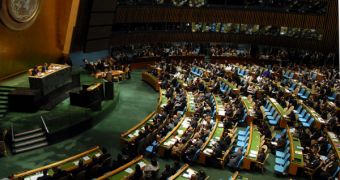President-elect Barack Obama founded much of his campaign on his environmental policies, and the people who voted for him, especially environmentalists and ecologists, hope to see their confidence pay off in the coming year, when the UN Conference on Climate Change is scheduled to take place in December. Copenhagen will host the meeting, which is expected to bring about new sets of policies, aimed directly at combating global warming and climate change.
Though Obama spoke about his support for such initiatives on several occasions, some UN officials recently expressed their doubts that the US would sign the new agreement, whose draft text is to be completed as early as next month, during the Poznan conference, in Poland. The Polish Environment Minister urged the new US president to attend, so as to send a clear signal across the globe, about America's willingness to partake in the global effort.
"I doubt U.S. legislation will be ready by Copenhagen. The odds of accomplishing comprehensive negotiations at Copenhagen are not very high. In fact, they're very low," warned Pew Center on Global Climate Change vice president of international strategies, Elliot Diringer. "The reality is, it may take more than the first year to get it all done," said Senate Energy Committee chairman Jeff Bingaman. The official also expressed his reluctance about a US cap-and-trade law being completed earlier than 2010.
The newly-elected American administration will have a lot on its plate next year, including how to resolve the economic crisis, whether or not to withdraw its troops from Iraq and Afghanistan and more. But the recent passing of the bailout bill through Congress, in record time, brings new hope that an environmental initiative could pass quickly as well.
During the Bush administration, several Democratic attempts of passing a trade-and-cap bill were turned down, with the vast majority of the Republicans opposing such endeavors. But now, with many new representatives in both chambers, the tide is likely to turn, and, if political will exists, bills could be adopted.

 14 DAY TRIAL //
14 DAY TRIAL //